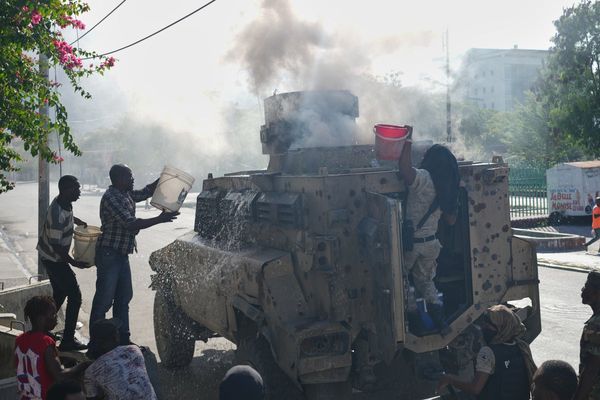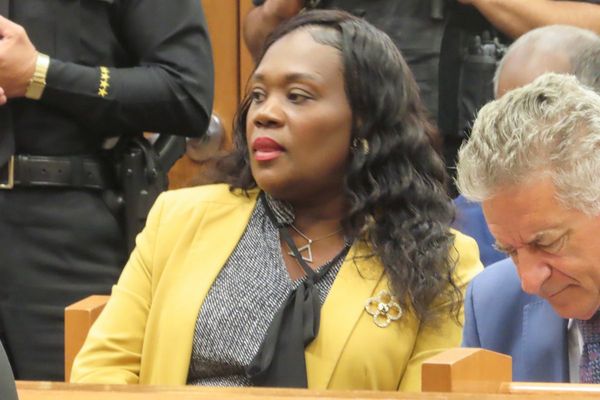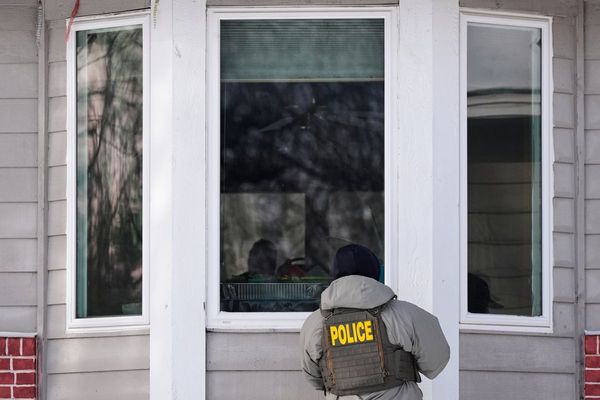
Even now, amateur trolls, sleuths and psychics are posting wild and sensational conspiracy theories on social media about the death of Nicola Bulley.
Yet, as a coroner concluded on Tuesday, her death while tragic was the very opposite of wild and sensational.
She fell down a steep bank into a cold river where she drowned, the inquest found. Why she fell will probably never be known, but it may have been as a result of trying to juggle a work meeting on her phone with putting on her dog’s harness.
Bulley was described as “a holiday swimmer” and the cold temperature of the water would have been shocking. In theory she could have died in seconds, the inquest heard.
In the frenzy after Bulley disappeared in January, many of the theories advanced on social media platforms were incredibly upsetting to her family.
After her body was discovered 23 days later, a mile away from where she was last seen, the family hoped the speculation would stop. But it didn’t.
After the inquest conclusion on Tuesday, the family said: “Sadly, we feel the need to again raise and address the issue of social media. It’s upsetting that we’ve continued to receive negative targeted messages and still witness wildly inaccurate speculation being shared over numerous platforms.
“We encourage people to look at the facts, the evidence which has been heard during the inquest, and the conclusion reached by the coroner, to ignore any amateur views and opinions, and be mindful of the impact words bring.”
The reaction to Bulley’s death was described as “a carnival of hysteria” after a procession of amateur detectives, influencers and psychics descended on the sleepy village of St Michael’s on Wyre in Lancashire.
People came to take photographs of themselves at the bench where Bulley’s phone was last seen. Some took it upon themselves to search villagers’ sheds and gardens, hoping they might find Bulley.
Shortly after Bulley’s disappearance, police were forced to put in place a dispersal order after TikTok and YouTube influencers arrived in the village, intimidating local people and causing a nuisance to police.
The family also criticised media outlets and the sections of the public who had accused her partner of wrongdoing and “misquoted and vilified friends and family”.
The seemingly endless theorising was arguably inflamed by the police themselves when they revealed that Bulley had “ongoing issues with the menopause that caused alcohol issues to resurface”.
They released the statement to explain why Bulley had been deemed a high-risk missing person.
The inquest heard more details about the drinking and the menopause, and again they were far from sensational. It was the sort of thing dealt with by health professionals everywhere, every day.
Her GP Rebecca Gray told the inquest that Bulley was on HRT for menopausal symptoms including hot flushes and sleep problems.
Over Christmas 2022, Bulley stopped taking her HRT and was drinking more than normal. On 10 January 2023 the family called health professionals after she said something along the lines of not wanting to be around any more.
A mental health professional, a paramedic and a police officer arrived at her home, part of a Lancashire project to address mental health crises in the community.
Theresa Lewis Leevy, the mental health practitioner, said Bulley was intoxicated but her case did not in the end merit the response.
Bulley’s sister Louise Cunningham said her sister was “absolutely fuming” that an ambulance had been called and said it had probably been over the top.
Her partner, Paul Ansell, called it “a blip”. Both said that Bulley was soon back on her feet, that she stopped drinking, was enthusiastic about her job and that “Nikki was Nikki” once again.
The coroner James Adeley said: “Her behaviour in the week before her death was back to normal.
“She had restarted her HRT therapy, stopped drinking some time before, was making plans for play dates and spa days with several people, was becoming increasingly successful at her new career as a mortgage broker and behaved entirely normally during her parents’ visit of the night before and with Paul Ansell on the morning of her death.”
The Lancashire police decision to release the private information had been questioned by politicians including the home secretary, Suella Braverman, and the prime minister, Rishi Sunak. Stella Creasy, the Labour MP, called it “deeply troubling” while the former victim’s commissioner Dame Vera Baird said it was “as sexist as it comes”.
An inquiry into the Lancashire police handling of Bulley’s disappearance by the College of Policing is expected to make a judgment on whether it was right to release the alcohol and menopause details.
Whether the coroner’s conclusion of accidental death, a common one which was recorded 35,600 times in the UK last year, silences the online trolls remains to be seen.
Bulley’s was a missing person’s case like no other. It meant the inquest was also was like no other, with a highly visible and unusual security operation in place. Adeley, the coroner, said it was necessary “due to the commentary on social media about possible disruption to the inquest”.
The trolls did not stop proceedings at Preston’s Victorian county hall. Whether they stop on social media remains to be seen.







